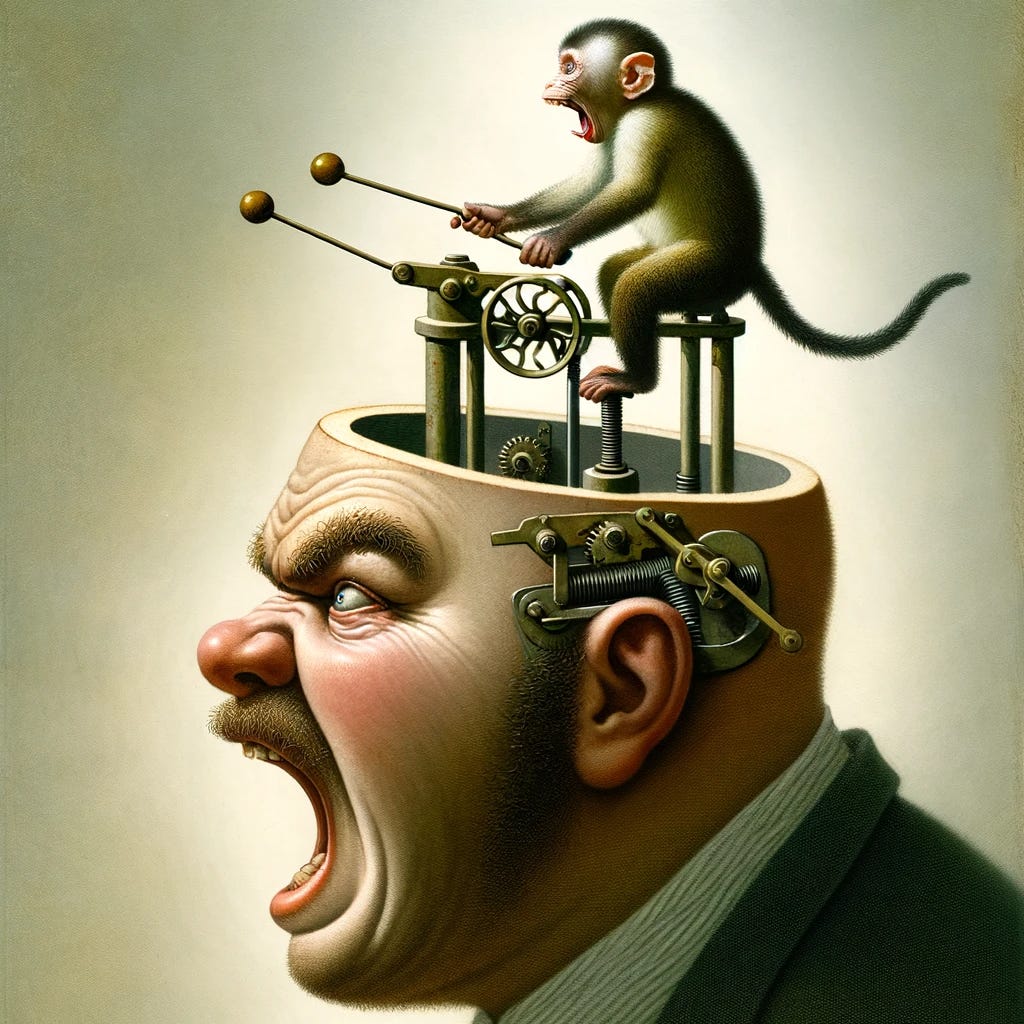“Holy sh** just f***in MOOOOOVE!”
I lost my cool. Major road rage. I was overcome with emotion, which that never happens to me on the road. I couldn’t figure out why this time, sitting in traffic made me so angry. It was hard to control. Even when I caught myself and put on a stoic face, my mind was racing. I felt like I had smoke coming out of my ears.
It only became clear to me months later while reading Clear Thinking.
Your Monkey Brain Is The Enemy
Part 1 focuses on “Enemies of Clear Thinking” and Shane argues that our biological instincts are the enemies. We spent hundreds of thousands of years as hunter-gatherers. Only those with the all the right physical and mental characteristics survived.
All the humans that exist today are descendants of homo-sapiens with the physical and mental characteristics that help them survive in the jungle, the desert, and the forest without GPS, backpacks or freeze-dried meals.
How often are you in situations today where you need to know how to do that? How much of your day is in serious danger?
(Hopefully) None.
Over the last 10,000 years , we’ve evolved as a society but not as a species. Our environment has changed much more than our brains and our bodies. Our brains are playing catch up.
We aren't built to naturally think about stuff like "maximizing shareholder value". We’re wired to survive in the wild. We have to be intentional to train our brains for today’s world.
Understanding Default Behavior
The biggest issue is that the biases we needed to survive as hunter-gatherers are not the same ones we need today. Actually, our natural biases tend to hurt us in most situations today. These biases have become our default behaviors.
We have four major defaults that infect our brain daily:
Emotion default
Ego default
Social Default
Inertia Default
But you may be asking yourself, “I’ve survived just fine this long without knowing these defaults even exist. Can they be so bad?”
It’s a fair point. I felt the same way. Shane has a great line explaining this,
“All the time and energy you spend fixing your unforced errors comes at the expense of moving toward the outcomes you want” (7)
Why I Was Mad in Traffic
When I got mad in traffic, my sister and girlfriend were in the car. I was driving them for the first time. We think everyone should be treated the same on the road. When cars cut me off, I felt like they were messing with my place in the group, making me look bad in front of people I care about.
My ego and social defaults made me livid. This feeling of wanting to be at the top of the hierarchy, especially in front of others, comes from our old habits. Falling too low in the hierarchy used to mean your life was in danger. Tribes often killed off the weakest members for the survival of the group. But not today, so…
Why does it matter that I got angry? Life goes on. Who cares?
Well now it might not be as easy to convince either person to drive with me. I’m going to have to spend more time and energy convincing them to overcome the unforced error I made last time we drove.
It might not seem like a big deal in isolation, but think about it over the course of a lifetime . One mistake is okay, but if you make a lot, you end up using a bunch of time and energy fixing them instead of doing new things.
In the next four days, we’ll look closely at each of these habits so you can spot them and not let your monkey brain’s tricks get you.
Brains Gains
How much further ahead could you be if you didn’t constantly spend time fixing unforced errors?
Go have a great day. Just smile. Over and over again. Whenever you have the chance. It’s all upside baby!
Your Friend,
Noah “BigNerd” Sochaczevski
PS. You’re not too late to get the book. Amazon will have it at your door by tomorrow and you can pick up where the emails left you off. Link to order book
PPS. BigNerds Book Club Calendar connects to your Google Calendar so you always know exactly where we’re at in the book AND you’re up to date on special events coming up.


